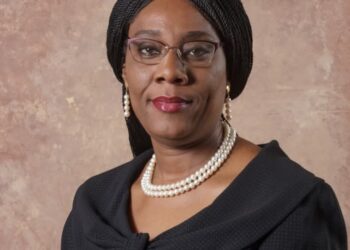By Francis Opeyemi.
The people of Ogbomoso have expressed deep appreciation to President Bola Ahmed Tinubu for his recent approval of the completion of the remaining 7km stretch of the long-awaited 65km Ogbomoso–Oyo road. This critical road project, which has faced delays for years, is now set to be completed, bringing much-needed relief to commuters and businesses that depend on the route.

News of the approval broke on Monday, confirming that the federal government has re-awarded the contract to Messrs JRB Construction Co. Ltd., an indigenous firm, following the termination of the previous contractor, Reynolds Construction Company (RCC), due to alleged non-performance. The decision to fast-track the completion of the road has been widely praised, as it underscores the administration’s commitment to improving Nigeria’s road infrastructure.
Residents and stakeholders in Ogbomoso have lauded President Tinubu for prioritizing the project, acknowledging that the road’s completion will significantly ease transportation challenges, boost economic activities, and improve safety for travelers. Many have recalled the hardships endured due to the delay, including prolonged travel time, accidents, and disruptions to trade and commerce.
While expressing gratitude, community leaders and road users have called on the Ministry of Works, under Minister Dave Umahi, to ensure strict supervision of the construction process. They emphasized the need for the project to meet high-quality standards, warning that any compromise could lead to rapid deterioration, forcing heavy-duty vehicles back into the city center and negating the purpose of the bypass.
Comparisons have been drawn to previous road repairs within Ogbomoso, where poorly executed sections quickly collapsed, leading to further expenditures and loss of lives. To prevent such setbacks, residents are urging both federal agencies and the National Assembly’s relevant committees to uphold their oversight responsibilities and ensure that the new contractor delivers durable and standard work.
As the people of Ogbomoso celebrate this milestone, they remain hopeful that the project will be completed without further delays, marking a new era of smooth and safe travel between Ogbomoso and Oyo.
You can get every of our news as soon as they drop on WhatsApp ...To get all news updates, Join our WhatsApp Group (Click Here)













This is lovely, dad. Keep it up ♥️🫂
Interesting and great advice to the monarch.
Is a good submission, keep it up. Thanks.
Very good
This is great, informative, educative and instructive!! Besides, the language is superlatively “audible” while the events are chronologically presented for the understanding of the readers….More ink to your pen sir..
This has been a great news, we hope the new construction company will expedite actions to showcase why he is chosen to replace the former.